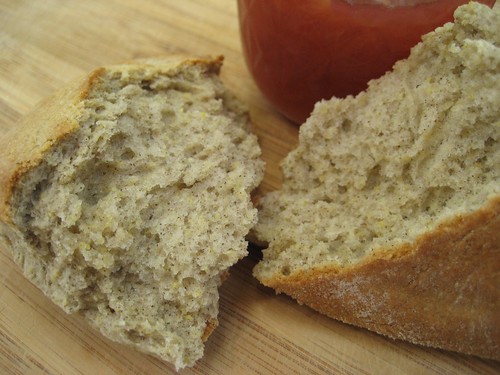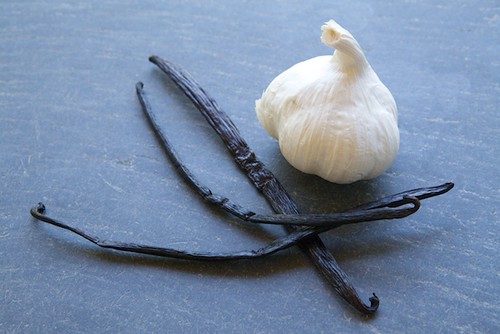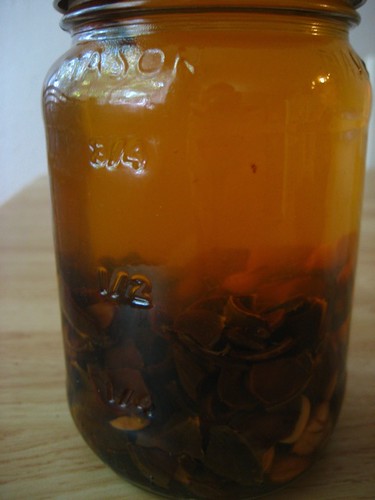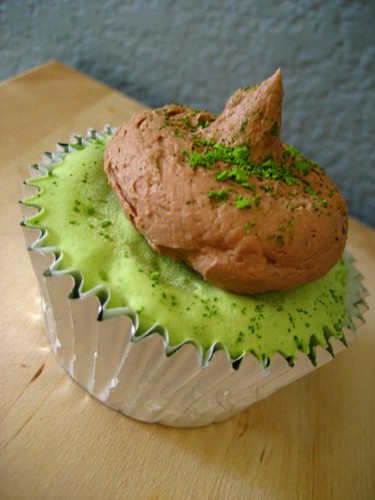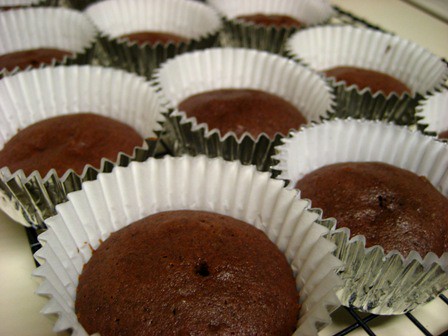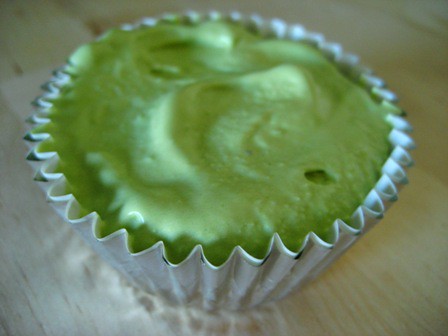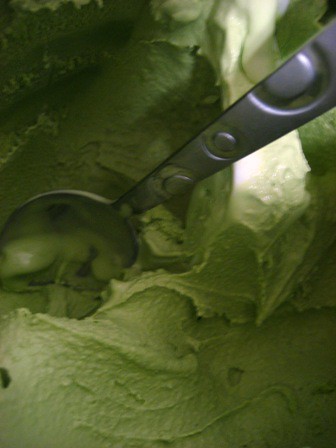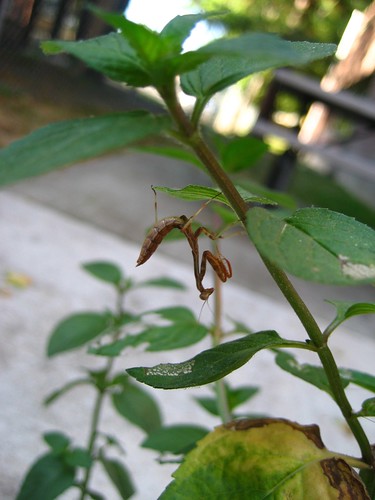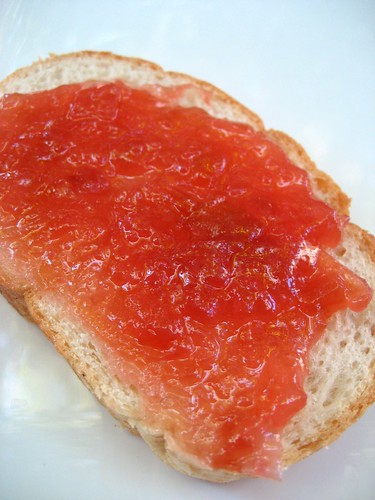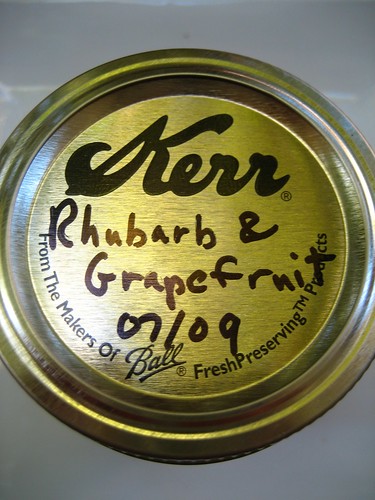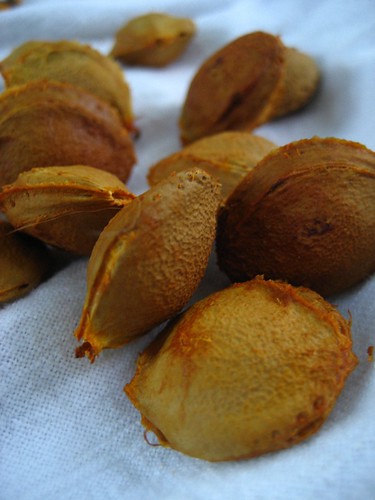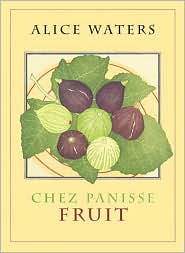 It was around 1:30 in the morning that I came to the logical conclusion that I would have to kill Alice Waters. It wasn't that I wanted to kill her, but rather my insanity compelled me to.
It was around 1:30 in the morning that I came to the logical conclusion that I would have to kill Alice Waters. It wasn't that I wanted to kill her, but rather my insanity compelled me to.It's not that she had done me any personal wrongdoing. I certainly hadn't suffered at the taste of her food, the scorn of her tongue, or the lash of her organic whip which I hear can cause the bravest of chefs to become timorous in her presence.
Alice Waters has become a very central part of my life recently, not for her recipes or her restaurant or cookbooks but because of my thesis research on Slow Food. I have at this point read every essay she has composed, every speech she has given, every letter she penned about the subject. Her good, clean, fair mantra became the fuel of my sleepless nights.
I began to go mad. Soon I was accompanied by a disembodied, matronly voice whispering in my ear, "Is that salad procured from local growers? Where did those croutons come from!? Is that tomato organic?" I swear I'm starting to see her face in trees and toast.
I had to kill her if only to stop her from continuing her rhetoric which I would have to read which then would make me crazier. Her death would bring peace to my wearied brain and body and a stop to her tendentious prattling in my head.
Since I had no desire to be on the front page of the New York Times with a headline reading "Food Blogger Murders Nine with Crenshaw Melon," I would have to find another option. Somehow I needed to endear Waters to me so that I could assuage my murderous intentions.

-Figs poached in red wine with spices are dark and intriguing.-
Lucky for us both a possible solution lied in one of her cookbooks, Chez Panisse Fruit. It was a book that I had browsed many times in the bookstore the way hungry wolves may cautiously circle a baited trap, deciding if the meal is worth the risk. I would pick it up and poke my nose in and warm myself to the linocut illustrations. I would be starving for knowledgeable prose and her frankness when she mused over huckleberries would satiate me.
Still, I would not commit to the purchase, fearful that in the cookbook world Chez Panisse was passe. I can be at times a slave to literary fashion, but with the potential crime looming over me I needed to connect with Waters and make her human and not just a lecturer (and victim). Determined to avoid jail I marched into the store, snatched the book off the shelf, paid for it and escaped to the car.
I opened the book and read it cover to cover in one night. Each page was classic Alice as we've come to expect her, and this was her own locally produced rabbit hole through which I began to fall. Each fruit was celebrated and detailed with Waters' quaint voice. "Fresh dates are a civilized pleasure." "Tangelos are man-made or accidental crosses of mandarins and grapefruit." "We serve these delicate nutty persimmon cookies alongside winter fruit compote or Cognac-flavored creme brulee." Each sentence instilled passivity and calm. Waters was redeeming herself.
The next day, soothed though not steady I set to work prepping a dish of halibut and lime tartare with coriander and shallots. Her recipes would be put to the test to see if they would mollify my wickedness. Just as the limes and cilantro assertively cut through the buttery fish so did it my frustration.
This was soon followed with a small batch of Meyer lemon sorbet. The sunny flavor broke through any remaining cloudiness. Alice Waters was suddenly saintly. I still had no desire to listen to her go on about Slow Food this and that, but she would no longer find herself and the wrong end of a cheese knife.

-Blueberries preserved in sweetened Syrah. Delicious when reduced and served with skirt steak or duck.-
I took her fruitful recipes to heart whipping up batches of blushing rhubarb and grapefruit preserves. And though her recipe for raspberries preserved in brandy was a bit costly for me, her method was not and blueberries preserved in Syrah (a combination suggested by my friend Lynn) took its place. Their opulent taste rendered any lingering thoughts of the crime away as I popped the berries one by one or reduced some of the sweetened wine into syrup for scones.
Dried figs poached in red wine with orange, cinnamon and vanilla were spicy and breathtaking. Dolloped over fresh vanilla ice cream I couldn't help but let a perky smile escape as I ate. Treaties could be crafted over a dessert like this.
I was relaxed. Happy and full of fruit I patted my stomach and rolled my eyes. Alice would live. From now on when I have to read another one of her forewords to a collection of essays I plan to go to the kitchen and cook from her book. With its volumes of information on so many varieties of fruit from tropical loquats to rural gooseberries its always in season and useful. So if I'm writing in winter or studying in summer Waters doesn't have to worry as I know I can turn to whatever appropriate section based on what season it is to sooth my ire.
The book is simply one of Waters' most intriguing works, easily pulling you in with evocative artwork and recipes that are feasible and scrumptious. You'll feel a connection with Waters and begin hearing her sweet voice following you to the Farmer's Market. (Without it awakening your criminal impulses, of course.) A classic resource that every home cook should read at least once to better understand the world of fruit.
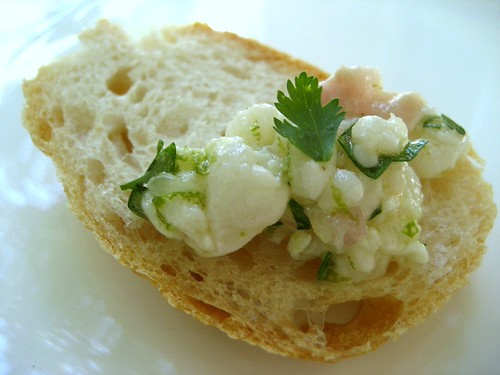
Halibut Tartare with Lime, Coriander, and Shallots
Adapted from Chez Panisse Fruit
Serves 6
3/4 pound halibut
zest and juice of 2 limes
1 shallot, minced
1/4 teaspoon ground coriander
olive oil
kosher salt
2 tablespoons chopped cilantro
bread or toasted brioche
Slice the halibut into thing strips across the grain removing any fibrous connective tissue. Cut the slices into strips and then dice as well as you can. (Having a sharp knife helps so you don't just butcher the hell out of it like I did.)
Place the lime zest, juice, coriander, shallots and olive oil and a pinch of salt into a bowl and whisk.
When ready to serve toss the halibut with a bit of salt. Add the sauce and toss again. Stir in the chopped cilantro and taste, making adjustments if necessary. Serve immediately on bread or brioche.











